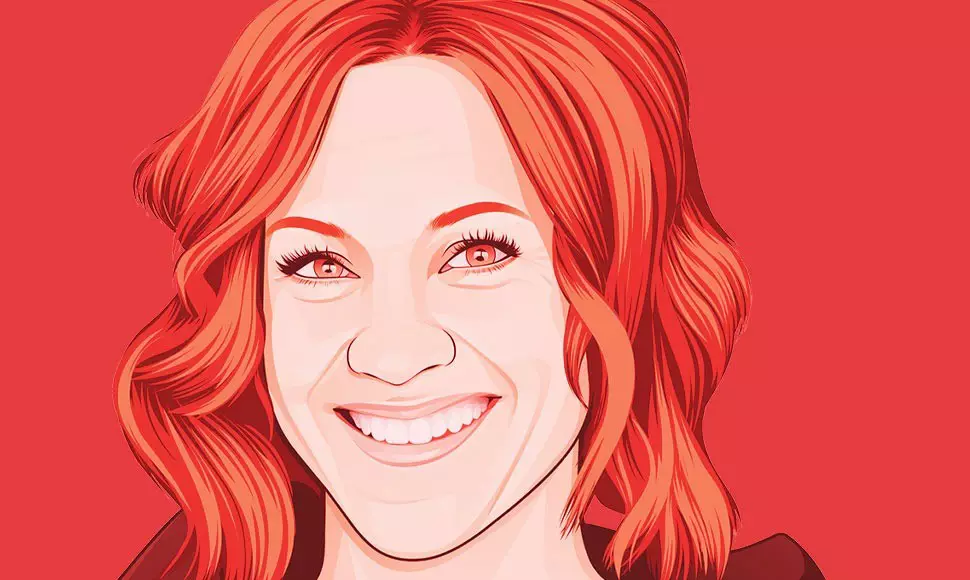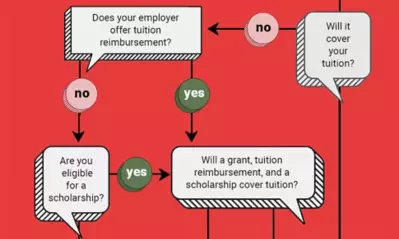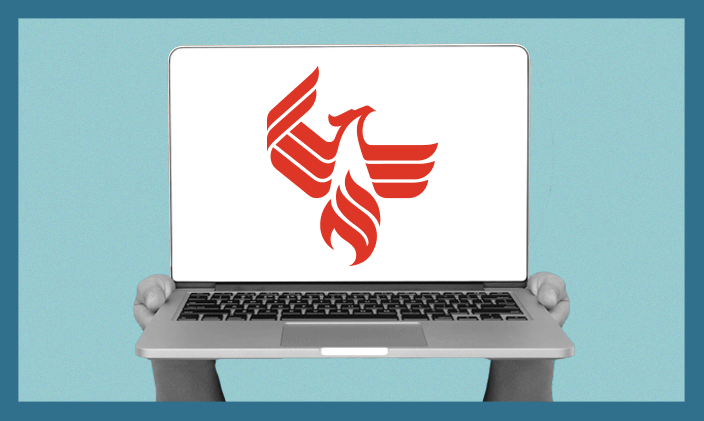Kristen Griffin was handed a raw deal by the universe and turned that into her life’s purpose

How do you make a new commitment to doing what you love?
As the vice president of Student Services at University of Phoenix, Kristen Griffin has an up-close-and-personal view of the challenges working Americans and students are facing during the pandemic.
There was the student who became homeless after she tested positive for COVID-19, when her roommates kicked her out. The student whose job forced her to work longer shifts because of layoffs, shrinking the hours available to study. And there were many students who got COVID-19 themselves or lost a loved one to a crisis that has now claimed more than 400,000 American lives.
“What we’re noticing right now is there’s an aggregate effect of all of life’s challenges building up on a student,” Griffin said. “Then something happens, and it’s the straw that breaks the camel’s back.”
Griffin is uniquely positioned to handle the task of motivating and managing a 400-plus person team of academic advisors whose job it is to help students navigate these challenges. A trained psychologist, yoga instructor and health coach, Griffin was handed a raw deal by the universe 17 years ago when her husband, Doug, was diagnosed with an aggressive cancer days after she found out she was pregnant — he passed away just weeks after their son turned 1.
Still in the depths of grieving, Griffin pushed herself to focus on her son, the students she looked after during her then-role as a university academic advisor and completing her Master's in Psychology online at University of Phoenix.
Her hard work paid off and led her to what she’s doing now. Griffin said, “Which is completely aligned to what it is that I’ve always wanted to do in terms of helping people.”
We asked Griffin a few questions about how she’s stayed committed to her family, her career, her staff and students in the face of challenges that might paralyze the average person.
Can you talk about the type of commitments you’ve made in your own personal journey?
First, you have to have a vision, a dream and a picture of what it is that you want, and then you have to have the belief that you can get there. From that belief comes the commitment of “I’m going to do the work to make that vision come true.”
What is learning and development?
I’ve been a single, widowed mom since my son was 1, and he’s 17 now. There was a very conscious moment early on as a single mom when I had a real vision of what I wanted for myself, my son and our life. It wasn’t about saying, “I want this position, and I want to be in this kind of house,” but I had clarity of how I wanted to feel and show up every day and what kind of life I wanted for us.
There was a very distinct moment (it was actually a breakdown in the bathroom!) when I made a new commitment, telling myself, “I can do this, and I’m going to do whatever it takes to help us get there.” And so that moment of commitment has always been something that I go back to, even to this day.
Focusing in on that moment, did you see your education as the next step to actualizing that new commitment to your family?
Yes and no. I knew education was the next step to get to wherever it was I wanted to go. However, I wasn’t sure where that was at first. As soon as I started my master’s program in psychology and then became a manager [in Student Services at University of Phoenix], the two of those things together really helped me see the natural skills that I already had — the talents that I brought to the table that were hiding. Those two things together were the “aha” moment of, “Well, wait a second, you totally know what it is that you want to do.”
Clearly this is specific to each student’s circumstances, but are there certain words to live by when it comes to addressing student needs and motivations?
“Grit” and “growth mindset” are at the root of all of it — the belief that you can grow and will grow with every circumstance that comes your way, versus being a victim of your circumstances. Commitment ultimately is a placement of priority and value on something. We do things because we find value in them, and so the “how” of coaching is to help someone find value in school and their goals over something else that might get in the way. If there’s more value in that, you keep going. If there’s less value in that, then you stop.
What are the types of challenges students are dealing with outside of academic commitments?
The student who is in a caregiving role with their family is very prevalent. They’re facing family members who are going through cancer, or they spent their entire life taking care of their children, and now they’re an empty-nester and wanting to go back to school. The single working parent is very prevalent. So are students with multiple demands of being the first in their family to want to do better — almost like they’re up against this idea of “You shouldn’t do better than where you came from.” Going against the grain like that is very uncomfortable.
How has the pandemic changed what your students are dealing with?
What we’re noticing right now is there’s an aggregate effect of all of life’s challenges building up on a student. People are telling us, “All right, I’m dealing with my family member that had COVID. I’m also working from home for the first time. I have three children, and they’re trying to go to school, but they’re online, so I’m trying to figure out, how do I work and how do I help be a teacher? And then I also had this financial hurdle, and my husband lost his job, and so now we have less income. So now I can’t afford my classes.” It’s kind of that conglomerate piling of things.
What’s a commitment in your life that you don’t regret breaking?
The to-do list! Sometimes self-care is about knowing when to let go of some of that to-do list. So these days, I make a to-do list, but I also make a “Ta-da list,” as in “Ta-da! Here are all the things I’ve accomplished.”
If there’s a story you’d like to share about how you dug deep within to create a career and life you love, we’d like to hear from you. To share your story, please email content@phoenix.edu
If you are ready to enhance your career, find out how University of Phoenix can be part of your success story.
Our “Committed” series interviews extraordinary individuals, like Kristen Griffin, who have broken through barriers to create successful habits that signal trust in themselves and the people around them.


